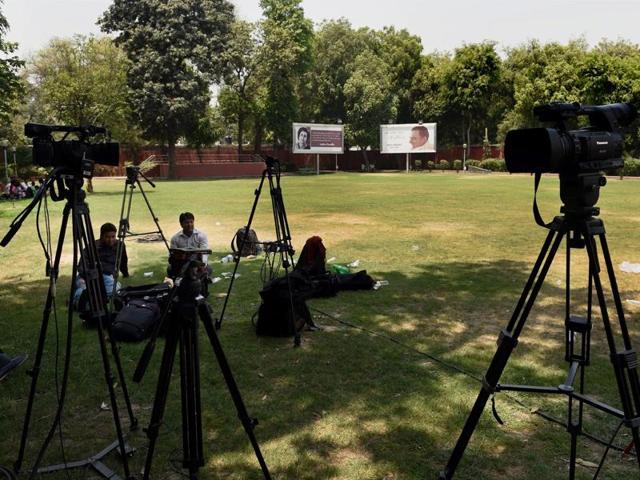In depth: After Assam, Kerala losses, Congress struggles to stay relevant
The silence that hung over the Congress headquarters on Thursday was heavy, the mood sombre -- in sharp contrast to celebrations just two days ago when the party managed to put up a decent show in the Delhi by-polls.
The silence that hung over the Congress headquarters on Thursday was heavy, the mood sombre -- in sharp contrast to celebrations just two days ago when the party managed to put up a decent show in the Delhi’s municipal by-polls.

Ousted from power in Assam and Kerala, the consolatory win in Puducherry did little to cheer party leaders. Hopes of resurgence in West Bengal, after an unprecedented alliance with the Left, too lay in tatters; that it emerged as the principal opposition party in the state is more of a technical detail.
For the grand old party, there are reasons to worry.
It has been rejected by voters in six states since May 2014, excluding newly-formed Telangana and Arunachal Pradesh where BJP-supported rebels did it in. The Congress’ reign is now limited to seven states with Karnataka being the only major state in its kitty.
The other states ruled by it are Himachal Pradesh, Uttarakhand, Manipur, Meghalaya, Mizoram and now Puducherry. In the ruling alliance in Bihar, the Congress is the junior partner among three parties.
The 131-year-old party now faces an uphill task to regain its prime position in Indian politics, with some observers terming it akin to climbing Mt Everest without oxygen.
The first reaction of the Congress on Thursday was to throw a protective ring around party vice president Rahul Gandhi. Rejecting suggestions that Gandhi should accept responsibility for the debacle, spokesperson Randeep Singh Surjewala said, “Every election has different issues and they should not be linked to any individual.”
This was in stark contrast to the Bihar elections last year when Congress leaders jostled to give Rahul credit for the Nitish Kumar-led grand alliance’s victory over the BJP.
Congress general secretary CP Joshi had called Rahul the ‘sutradhaar (architect)’ of the victorious alliance.
Going by the trend, the opposition party faces a difficult prospect in assembly elections next year in Uttar Pradesh, Uttarakhand, Punjab, Goa and Manipur. In Punjab and Goa, the Aam Aadmi Party (AAP) is making a determined bid to capture power and emerge as a pan-India alternative.
The Congress was aiming to regain power in Gujarat – which will go to the polls in 2018 -- after a gap of 15 years, hoping to cash in on the anti-incumbency factor. But the BJP wresting a Congress stronghold, Talala, in the by-polls does not augur well for it.
Read: Poll results: Cong ousted in Kerala, BJP wins Assam; Mamata, Jaya retain power
“The Congress is certainly in a difficult situation. They are losing states one by one. Rather than BJP, regional forces pose real danger to the Congress,” said Sanjay Kumar of the New Delhi-based Centre for the Study of Developing Societies.
“Another tricky issue for the party is striking a right alliance. Whether to go for an alliance or not in a particular state is a difficult choice,” he added.
From 2014 onwards, the Congress has lost power at the Centre and in six states including Andhra Pradesh, Haryana, Maharashtra and Jammu and Kashmir.
The BJP sees the successive defeat of its rivals as people’s response to Prime Minister Narendra Modi’s slogan of a “Congress-mukt Bharat”.
Surjewala, however, dismissed the suggestion.
“Congress is not only a political party but an ideology, a thought, a way of life -- which permeates the soul of the nation. Neither BJP, nor any individual can destroy it,” he said.
The situation is not new to the Congress. Leaders point out a similar turbulent phase in 1998 when the party ruled just four states - Madhya Pradesh, Odisha, Mizoram and Nagaland.
That was the time when Sonia Gandhi took over its reins. Under her leadership, the party rose to govern 17 states -- either alone or in alliance -- in 2004.





